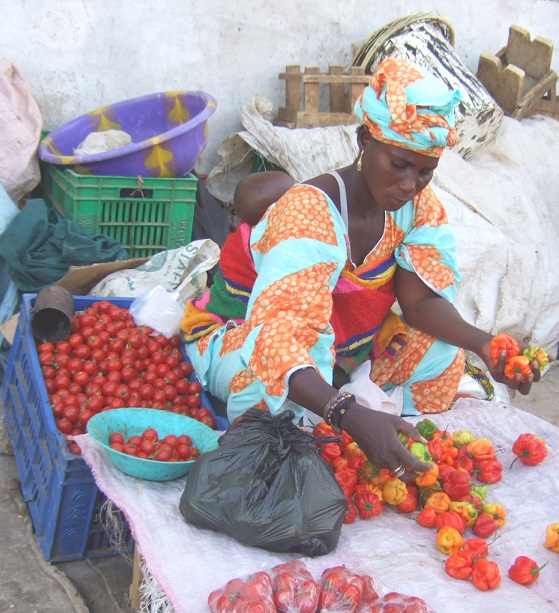-
About
- Our Work
- Get Involved
- Stay Updated

In September 2014, the Senegalese Ministry of Interior announced that 600,000 Senegalese living in the country’s rural areas would need assistance after a shortage of rain this past summer. The month of May is a crucial time for sowing crops because the earnings from the harvest assist farmers in paying the education for their children, amongst other things. However, inadequate rainfalls have resulted in the already impoverished farmers losing not only their crops but also a lot of money. They have also been unable to sow enough crops through their usual crop-planting months of June and July. And although the country received more consistent rainfalls in the preceding months, they came too late to save the planting activities of many farmers.
This news is even more unfortunate because the country has still not recovered completely from the 2011 drought that impacted much of the Sahel region. The French news agency, France24 reported that this summer the Casamance region of Senegal is also at a risk of famine. Surveys conducted by the Government and the World Food Programme are showing that 16% of Senegal’s population or 2.2 million people are food insecure.
Urgent need of Food Assistance
There is an urgent need to provide food assistance to all the 600,000 people who are going to be impacted in the coming months. Senegal has a dynamic democracy and committed public institutions, and the Government has proved that it can mobilize its aid to respond to this upcoming crisis. With many of the leading international organizations headquartered in Dakar, capital of Senegal, the Government would be able to solicit their support for the assistance they need.
Aside from providing farmers with immediate assistance, the Senegalese Government, with support from international funders and civic organizations, should be encouraged to take bold action to modernize the country’s agricultural sector. This move would provide jobs to thousands of Senegalese unemployed people. Farmers wwould have access to better irrigation and quality seeds for them to fight soil erosion more effectively. Moreover, they could increase their storage capacity and have access to better healthcare and insurance. Above all, the Government should create regional education centres where farmers could learn new farming techniques that would allow them to farm more efficiently and profitably.
Agriculture Development in the face of Climate Change
Senegal and other countries within the West African region face specific and complex short-term and long-term food-security challenges. In the short-term, there is an immediate need to provide food relief to not only farmers in Senegal, but farmers residing in countries hardest hit by the Ebola virus (Guinea, Sierra Leone and Liberia). These countries are also in need of immediate food assistance. Many farmers in these countries have lost their wives, children or loved ones, and many of them have been unable to harvest the crops they planted in May, according to AFP.
In the long term, regional West African leaders, policymakers and civil society representatives will need to come up with a comprehensive strategy for dealing with the urgent and interrelated issues of food security, unemployment and climate change that are faced by the poorest and most vulnerable people in the region.
With West Africa’s leading countries facing economic difficulties along with political and security issues, Senegal has the responsibility to show leadership, through leveraging the expertise of its farmers, research institutions, and universities, to demonstrate how the region can create long-term employment, and deal with the problem of climate change through developing the country’s agriculture.
Picture credit: African market, by Sofia Henriques.
About the author
Author's recent posts
More posts from authorRelated Posts
Comments
No comments made yet. Be the first to submit a commentBy accepting you will be accessing a service provided by a third-party external to https://www.ypard.net/
Get in touch
Email: [email protected]
YPARD Global Coordination UnitHosted by AGRIDEA and the Czech University of Life Sciences Prague
Lausanne, Switzerland and Prague, Czech Republic - Our Work

